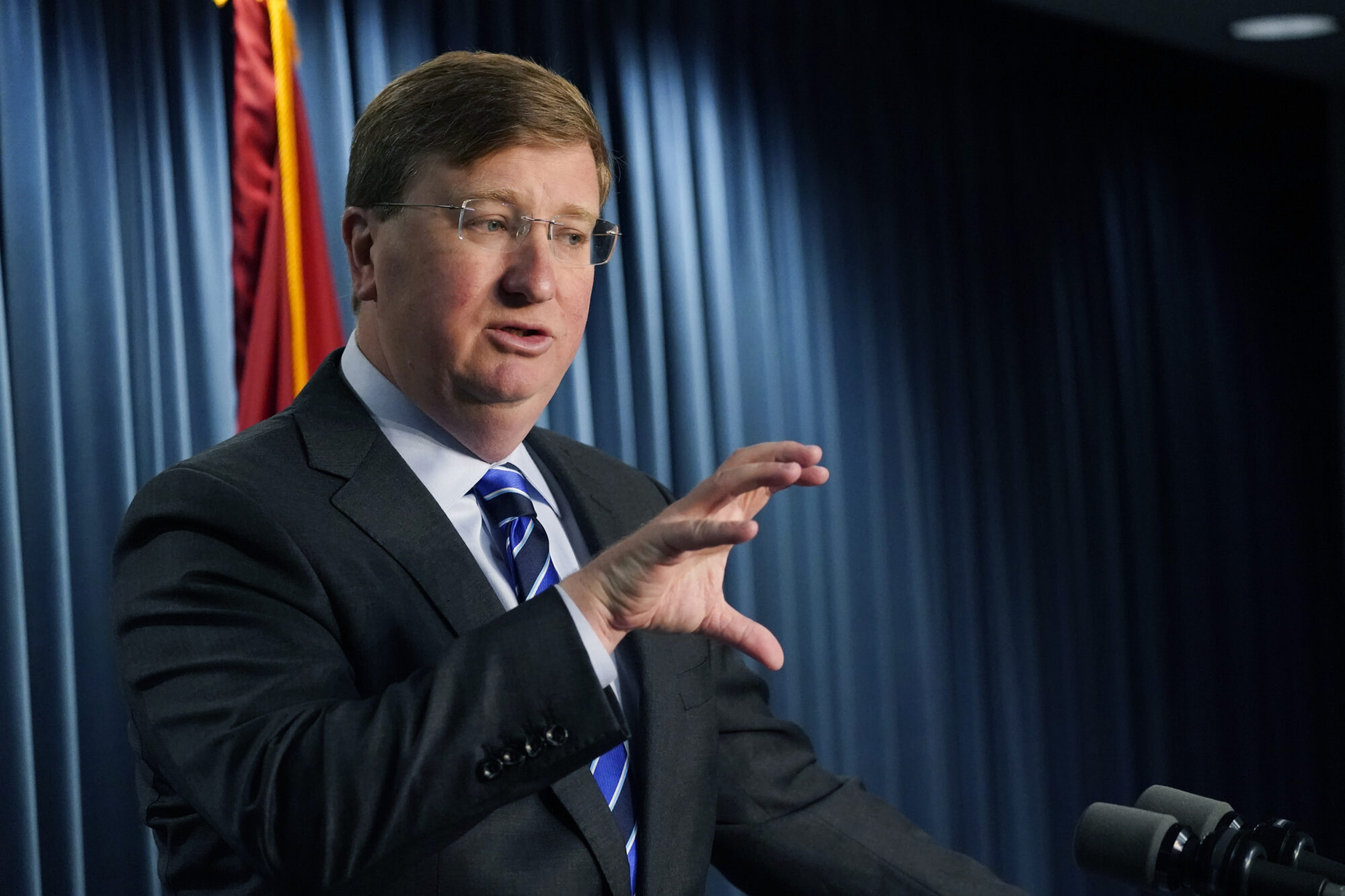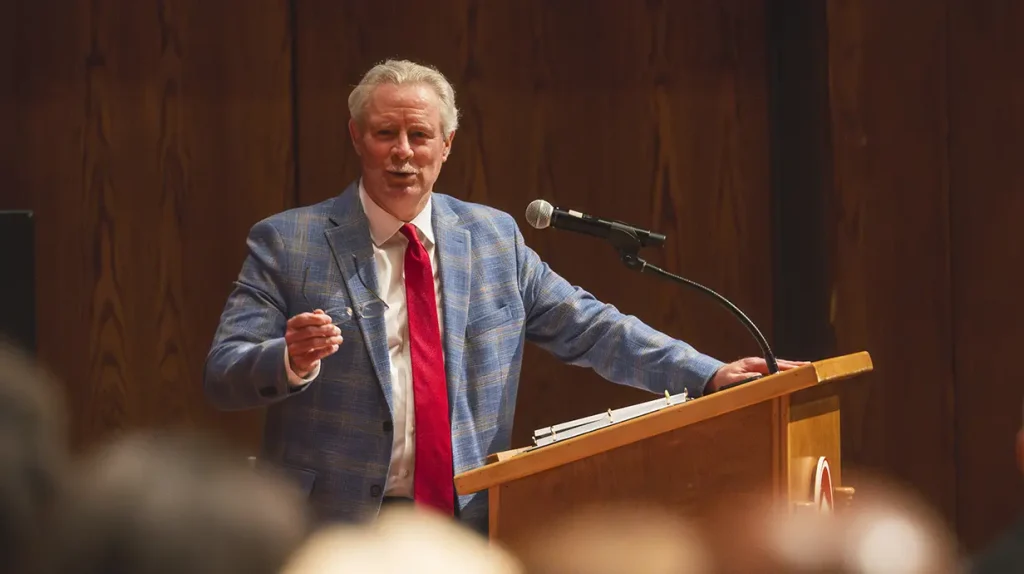Gov. @PhilBryantMS State of the State 2017 #msleg #budget #education #bicentennial #lottery?
Gov. Phil Bryant’s 2017 State of the State
Thank you, Mr. Lt. Governor, for your kind introduction. To you and the Speaker: Thank you for your service to the taxpayers of Mississippi, and for your friendship to me. I am equally proud of both.
Before I get started, I want to attend to the night’s most important business: Seated behind me is the woman who has served our great state as first lady for five years now, my wife Deborah. I agree. Her service to our state – and putting up with me for 40 years — deserved a round of applause.
Let me also thank the members of the House and Senate for allowing me to use our beautiful Capitol to share this update on our accomplishments and challenges as we continue our mutual efforts to make Mississippi better than ever for today’s citizens and the next generation.
To all state, federal and local officials, thank you for your service and attendance here tonight. To the members of our armed forces, serving here and abroad, thank you for protecting our freedoms. Although he could not be with us tonight, I will announce that retired Gen. Roy Robinson, of the Mississippi National Guard, was recently named President of the National Guard Association of the United States—a high honor for Gen. Robinson and Mississippi. We also have a soldier here tonight I would like to recognize with your indulgence: Gen. Durr Boyles, who I have appointed as Adjutant General to lead the Mississippi National Guard. I will now ask Gen. Boyles to stand and receive our appreciation.
As to our law enforcement community, here and watching at home, thank you for keeping our families safe. The first and most important responsibility of any Governor is public safety. Across our nation, law enforcement is under attack. Here in Mississippi, most of our citizens continue to support and respect the men and women who wear the badge and protect and serve. I appreciate the legislation you have introduced to protect law enforcement and show the nation that here in Mississippi, Blue Lives matter.
2016 was difficult for law enforcement, as we saw the wounding of three Mississippi Bureau of Investigation agents and the tragic loss of Mississippi Bureau of Narcotics Special Agent Lee Tartt during a hostage crisis. Agent Tartt gave his life to save a 10-year-old little girl. We must never forget his sacrifice and the sacrifice of those who have gone before him. This year we should dedicate ourselves to support, honor and back the badge.
There is a lawman here tonight who has served his state and the Department of Public Safety for 43 years. He will be retiring at the end of this month. He returns home with our admiration and gratitude. Please help me thank Commissioner Albert Santa Cruz of the Mississippi Department of Public Safety.
At this point Commissioner Santa Cruz would want me to remind you we are in desperate need of a new trooper school. Currently, the Mississippi Highway Patrol stands at 161 troopers less than is statutorily allowed. Fortunately, this is not a dictatorial formula. However, the safety of the motoring public and the troopers serving rests with your decision. I ask you tonight to back the badge of our troopers and put more of them on the road.
To the taxpayers who hear this message, rest assured your Governor recognizes that you are sovereign. You, by the power of your vote, grant us the authority to govern. The Mississippi Constitution makes clear that, “All power is vested in and derived from the people.”
And if we the servants of this Republic ever forget that, we’re just one election away from a reminder that will be neither gentle nor pleasant. The hardworking people of this country and this state have shown us time and again that they will not tolerate being ignored, or subjugated. I present this not as an admonition, but as a friendly reminder. Let us continue to do the people’s work so no one will get the mistaken belief that this Capitol is a swamp that needs draining.
Fortunately, we and the people have a lot to be proud of. The number of Mississippians who are unemployed is the lowest since February 2004. In fact, Mississippi was one of only nine states to experience what the federal Bureau of Labor Statistics called a “significant” decrease in unemployment.
The last 12 months, we have announced more than 6,000 new jobs from projects incentivized by this Legislature through your team at the Mississippi Development Authority. These projects have also generated more than $1.9 billion in private investment. According to our state economist, we are poised to see two consecutive years of growth in overall economic output for the first time since the Great Recession.
In 2016, 23 million people visited Mississippi, a 3 percent increase over 2015, and the most since Hurricane Katrina. Statewide visitor expenditures were approximately $6.3 billion, a more than 2 percent increase over the previous year. Thanks to the aggressive marketing at Visit Mississippi, more people are coming to the Hospitality State and leaving their effect on our bottom line.
We have been awarded a sixth consecutive silver shovel by Area Development Magazine. Just recently, Mississippi was awarded Business Facilities magazine’s Gold Award for the top Economic Development Deal of 2016 for Continental Tire, located right here in Hinds County.
Meridian was selected as the location for Raytheon’s T-100 assembly plant over 40 sites in nine other states. If selected by the United States Air Force, Raytheon and its partners will be assembling the next generation of supersonic trainers at Key Field in Meridian, Miss.
The Federal Aviation Administration has already recognized Mississippi’s potential for avionics greatness by selecting Mississippi State as the National Center of Excellence for Unmanned Aerial Systems. The FAA could have selected any university in America but chose Mississippi State. Unmanned aerial vehicles and systems will change the world as we know it, but not until the standards and practices have been established here in Mississippi.
As you know, we are also making great progress in public education. More than 90 percent of our third-graders passed their reading exams last year, and our fourth-graders led the nation in scoring gains on their reading and math tests. Because of the work of organizations like Jobs for Mississippi Graduates, which serves at-risk high school students, our graduation rate is over 80 percent, which is higher than it has ever been.
This is not going unnoticed. The Education Commission of the States, of which I was recently honored to be voted national chairman, selected Mississippi for the Frank Newman Award, the Heisman Trophy of Education. The Commission, which is the nation’s premier education organization representing the states, recognized what we have done to make our system of public education the most innovative in America. We are lucky to have with us tonight the president of ECS, Jeremy Anderson. Jeremy, thank you for your attendance here tonight.
These accomplishments only come from working together, and from listening to stakeholders such as teachers, principals, and most importantly, parents.
To personally witness the stakeholders and innovators, I recently visited the Academy of Innovation, which is part of the Vicksburg-Warren School District. The hardworking and dynamic leader of this diverse and challenged school district is Dr. Chad Shealy. The STEM Program at the Academy is intentionally designed to provide personal relevance. Dr. Shealy believes, as do I, that all education should lead to employment. Tonight I want you to meet Superintendent Chad Shealy and welcome back to the chamber his biggest supporter and Vicksburg Mayor, George Flaggs.
It is educational innovation and individual student opportunity that is being forged in the Vicksburg-Warren School District. Such innovation will bring about the real-world improvement in career and college readiness so desperately needed across our state.
Each year in this speech I address the importance of working together to better public education. And each year, immediately following this address, some self-appointed education advocate will appear in a pre-recorded message of opposition — claiming this Governor and the legislative leadership are somehow in conflict with public education. Nothing could be further from the truth.
You see, we are determined to do something no one before us has ever achieved: to make Mississippi’s public education system one of the nation’s finest. The rewards are certainly worth the risk of criticism. As risk-takers we may be successful with transformational change in public education; but if we are not, we will try again and again. It is time for all of us to be in the arena.
Last year I made a bold request of this Legislature and its leadership to create a new state agency for the singular purpose of managing our foster care system. For almost a decade Mississippi has been under a federal court mandate to improve the way we care for our foster children. The reality is we did little to improve this system until you agreed to create the Department of Child Protection Services and invest $34 million into improving the effort. As you know, Justice David Chandler retired from the Mississippi Supreme Court to take the reins of Child Protection Services. I can assure you tonight your investment and desire for improvement in foster care has made a difference.
Today we are serving more foster children than ever. The most innocent among us who have struggled with neglect and abuse are receiving proper care. The improvements were sufficient in this first year as to compel the federal court to allow a less restrictive set of requirements and remove Mississippi from the oversight of a court monitor for the first time since 2008.
Dr. Chandler and his team deserve much of the credit for this success, and they should receive our gratitude for a job well done. But it is also important to remember improvements must continue. Not only because of the court order, but because it is simply the right thing to do. I have dedicated my remaining time in office to ensuring our foster children get the care they deserve. It will be my top priority. We cannot and will not fail at this endeavor. Our children will be protected.
Among the most serious obligations we have as representatives of the people is to appropriate their hard-earned tax dollars wisely, and only on those programs and services that have clearly demonstrated benefits.
I understand the process of crafting a budget is difficult; often, it’s thankless. The popular narrative that we don’t spend enough will never subside. I have heard its refrain for each of the 25 years I have been a part of this process. That being said, it is imperative we maintain the discipline of spending only 98 percent of available revenue in the coming fiscal year. I thank the Joint Legislative Budget Committee for choosing to do the same. It is black letter law and we should abide by it.
While I acknowledge the temptation to set aside the 98 percent rule, the reality of doing so is a political convenience that is not without real-world consequences. Following the law and setting aside 2 percent of available revenue in the Rainy Day Fund will lessen the likelihood of mid-year spending cuts if revenue comes in under projections. It will also protect the state’s credit rating, in turn lowering the cost to taxpayers when we engage the capital markets.
When I came into office in 2012, Mississippi had $115 million in the Rainy Day Fund. That was 5 percentage points less than what state law allows. The funding level peaked at just more than $400 million in 2016, but budget cuts I made last year in keeping with my statutory responsibility have lowered it.
As you all know an additional budget cut of less than 1 percent was recently made in accordance with my executive obligation. Let me provide some reality. My first budget as governor in 2012 was $5.53 billion. With the most recent adjustment to the 2017 budget it will still be $6.26 billion — or approximately 13 percent larger. That’s $730 million more in government spending from state support appropriations than just five years ago. That is almost three times the rate of inflation. So any narrative implying draconian cuts in state service would simply be fake news.
Tonight I’m reminded of the words of a popular song from 1969: “You can’t always get what you want, but you get what you need.” Let us now go about seeing what state government really needs.
My executive budget recommendation calls for an additional $57 million to be transferred to the Rainy Day Fund at the end of the fiscal year, a recommendation I believe deserves legitimate consideration. Replenishing the Rainy Day Fund as near to the full statutory amount must be a priority, this and every year.
I will also ask you to create a new and separate savings account this year, one that will house what remains of the initial payment from the BP economic damages settlement. That nearly $110 million should go into the Gulf Coast Restoration Reserve Fund. When the time comes to assemble the budget for fiscal year 2019, I still believe the funds should go where the worst damage occurred – our Gulf Coast. However, it would be wise to reserve these funds until appropriate projects and potential leveraging of other funds can be thoroughly considered.
At the end of last year’s session, I was proud to appoint one of your own House members as commissioner of the Department of Revenue. I can assure you Herb Frierson wasted no time in going to work on the improvements needed at DOR. You will soon see the results of that labor in an aggressive, and I believe, necessary, legislative agenda that will help generate additional tax revenue without burdensome increases to taxpayers.
It will, if properly implemented, help collect taxes that are owed to the state and give more ability to the commissioner to settle tax issues that have lingered in arbitration or simply gone uncollected. I hope you will provide the same support and attention to Commissioner Frierson as when he was the House Appropriations chairman.
Even though he is on the agency side of the appropriation equation, he will still need your vote.
I also eagerly anticipate modernizing the formula we use to fund public education. Like many of you, I believe we should devote resources to education programs that have consistently achieved their stated goal, and prioritize spending where the student gets the most good out of our investment. This priority should be in the classroom, not at central office. This is a value that I hope is shared across the political aisle, and by the educational lobbyists and establishment. Our schoolchildren and their parents deserve nothing less.
As I have proclaimed since my first day as a member of the Mississippi House of Representatives, every taxpayer deserves a government that operates as efficiently as possible. While I am proud that we have worked together to reduce waste and maximize services for the hardworking taxpayers, we can do more.
State government is structured in a way that leaves it woefully fragmented, with many of the various parts operating in silos. Consolidation among agencies, boards and commissions – many of which serve identical functions and duplicate services – may not save a significant amount of money immediately; but would, over time, generate the kind of cost-savings that could strengthen a core function of government, like education or public safety.
These reforms have long been discussed, but never enacted. I appreciate the fact that consolidation of agencies means pushing against the status quo and its support system. Vendors, special interests, lobbyists and even some in the media will protect their sacred cows — as if appointed boards and commissions would be preferable to oversight and management by an elected official who by both law and custom is accountable to the people.
I do not wish to imply that all boards, councils or commissions are unnecessary. For example, the IHL Board and the Community College Board provide a valuable service and act as buffers against political interference in higher education. The Ethics Commission is certainly a standard of accountability that provides the foundation for public service. I will ask this session for an addition to these entities. Creating the Mississippi Faith-Based and Community Advisory Council will enlist, empower and expand the work of volunteer faith-based and community organizations. I believe it will strengthen families all across Mississippi, with no cost to the taxpayers.
Similar councils exist in a number of other states, including Florida, where Rabbi Jeff Kurtz-Lender served before coming to Mississippi and leading Beth Israel Congregation. I want to sincerely thank Rabbi Kurtz-Lender for bringing this concept to my attention. I believe it will be a valuable tool to help serve our families and individuals in need.
I will also ask you to terminate at least 16 boards that have not met in over a year. This is the proverbial low-hanging fruit for improving our governmental system. Obviously, more substantive reorganizational recommendations will be discussed as the session progresses.
While we are seeking efficiency, I believe it’s also time to look at ways to grow revenue, without raising taxes. As I stated in my executive budget recommendation, I am open to a general discussion regarding the implementation of a state lottery. As you know, voters cleared the legal pathway for a lottery in 1992 when they chose to remove the constitutional prohibition and allow the Legislature to provide authorization and control.
Arkansas – the state closest to us in population and demographics – received $80 million from its lottery last fiscal year. That kind of data demands attention. When we see traffic crowded on the Mississippi River bridge taking revenue to our neighboring state, it may be time to face a new reality. We can no longer contain the people’s desire for a lottery, we can only force them to travel.
As many of you know, we have already embarked on one of the largest, longest and most meaningful celebrations in our state’s history. Our beloved Mississippi turns 200 years young in December.
Before Alabama, there was Mississippi. Before there was California or Texas or Florida, there was Mississippi. It is now time for the 20th state to enter the union to celebrate our history and embrace a brighter future.
Our Bicentennial is the perfect opportunity to share with the world everything that makes Mississippi the best place in America to live, work and raise a family. I hope everyone listening will participate in the events our communities have planned to mark this once-in-a-lifetime occasion. I hope you all embrace the reality that we are allowed this moment in time to join our hands and hearts and reinforce the cherished ties that bind us into statehood.
Like most nations and states, Mississippi has had trials and tribulations that cannot be forgotten or excused. But, we also have a rich history that should be celebrated by us collectively. We were first inhabited by Native Americans who continue to preserve their culture. We are joined tonight by my dear friend who leads the original and first people of this state, the chief of the noble Choctaw Nation, Chief Phyllis Anderson.
Spanish and French explorers such as DeSoto and D’Iberville sought out the Mississippi Territory for its natural resources and beauty. Frontiersmen and women carved out the land to homestead. Then the very soul of our state was tried as a tragic civil war and the bondage of our own into slavery brought destruction and hardship. Generations struggled during Reconstruction and conflict. Great depressions and world wars hardened and tempered the agrarian society that survived. But out of this crucible came a determined people. From the dark days of the civil rights struggle to freedom of the new south, Mississippi did more than just endure — we prevailed.
Now, after 200 years, we are becoming a leader in aerospace and automobile manufacturing. Our people make the world’s most advanced warships and radar systems. New medical schools and research centers rise up from the landscape.
Historical and civil rights museums will join those dedicated to the Blues, the Grammys and to B.B. King, whose final resting place is at his museum in Indianola, Miss. Arts and Entertainment centers will reside in the home of the Father of Country music, Jimmie Rodgers. As the birthplace of America’s music, we continue to entertain the world and guide visitors on trails of blues and country music and civil rights and invite the public to visit the birthplace of a king in Tupelo, Miss.
Two hundred years after its founding, the state of the state of Mississippi is better than ever. As always, naysayers will find every reason to reinforce a belief that Mississippi will never come together to heal our wounds and achieve greatness. But we know better, because we are doing so every day.
There is a greatness in our people who are the most generous and hospitable of any in our nation. There is greatness in their talent, ingenuity and courage. I have seen similar traits and conditions among the people of Israel, one of the world’s most complex and diverse nations. When in Israel you see the hospitality and welcoming that are so common. You feel the deep faith of Judaism, but also an acceptance and understanding of other religions and denominations. No one seeks peace more than the Jews. Their salutation is Shalom – peace to you.
Mississippi has sought this elusive blessing as we struggled to become one state. Our people have endured the harshest of times and treatment, and still achieved greatness. This greatness, we pray, will exist in our time, and for all time, for Mississippi. For as it was written long ago, “If my people, which are called by my name, shall humble themselves, pray and seek my face; then will I hear from heaven, and will heal their land.”
May this promise always be our guide, and may God continue to bless Mississippi and the United States of America.
Governor Phil Bryant
1/17/17






